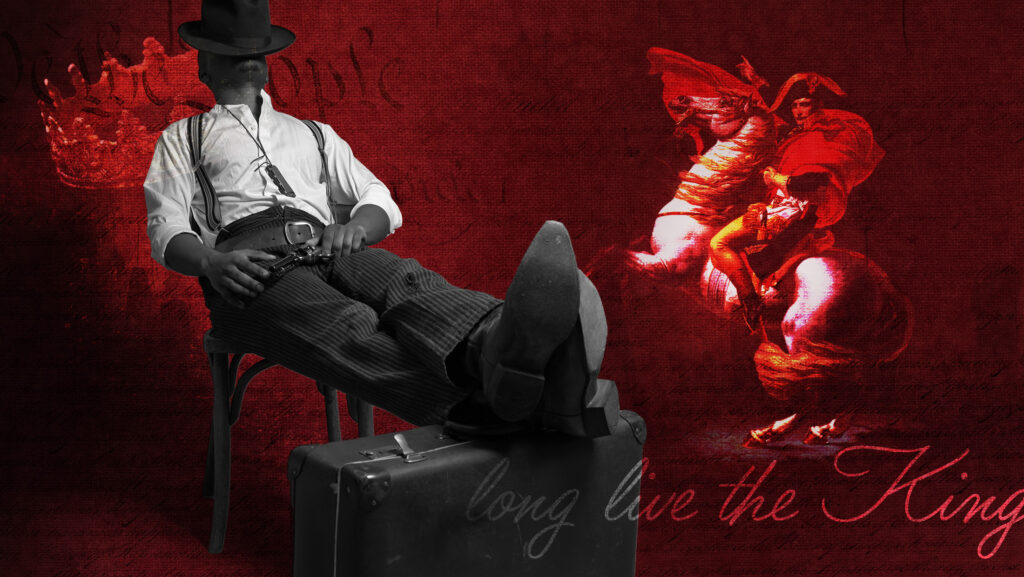What Happens When an Executive Ignores the Law? Ask Constitutional Sheriffs.

Vice President JD Vance took umbrage at the idea that a federal judge could pause President Donald Trump’s massive extermination of government programs via a post on Elon Musk’s social media platform X that flouted the long-held doctrine that the judicial branch determines whether executive actions are in line with the U.S. Constitution: “Judges aren’t allowed to control the executive’s legitimate power.”
Democracy Docket is committed to exposing the Trump administration’s actions to undermine our democracy and covering the legal efforts to fight back.
Subscribe to our free daily and weekly newsletters to get the latest updates sent to your inbox.
Not to be outdone, a few days later, Trump posted a quote frequently attributed to Napoleon Bonaparte: “He who saves his Country does not violate any Law.” He followed this up a few days later with a Truth Social post, “LONG LIVE THE KING.”
Since coming into office, Donald Trump has issued dozens of executive orders, many of which openly flout the text of the Constitution, a document that every politician must swear an oath to uphold. Many of these orders, including one purporting to end birthright citizenship, have been blocked by federal judges pending litigation.
Many constitutional lawyers agree that there is a pending constitutional crisis, which will be definitively triggered if Trump refuses to obey a court order. Thus far, Trump has walked up to the brink, doing everything short of directly ignoring a court order. The administration’s press secretary Karoline Leavitt blamed judicial activists, saying that “the real constitutional crisis is taking place within our judicial branch.”
Elon Musk has amplified attacks on judges on his social media platform X, and Utah Sen. Mike Lee (R) went so far as to propose legislation that would limit the ability of federal judges to issue nationwide injunctions, like the one on birthright citizenship. (This is far from the first time Trump has taken to defaming judges.)
What it brought to mind were things I had heard sheriffs say while I was reporting my book, The Highest Law in the Land. The “constitutional sheriff” movement has long argued that sheriffs, as elected officials without direct oversight, are beholden to no court, legislature or other executive. Instead, the movement presents the sheriff as an “expert” in the constitutionality of laws and scorns the expertise of lawyers and judges.
The intentional flouting of laws is prized among these sheriffs as a sign of their authority aligned with a proper Christian interpretation of the Constitution and other founding documents. (Notably, constitutional sheriffs do not acknowledge any constitutional amendments beyond the Bill of Rights, including the 14th Amendment, which guarantees due process.)
“Constitutional sheriffs” who refuse to obey judicial rulings often escape serious consequences even though their actions are often rooted in white supremacy and antisemitism.
As a former sheriff in Louisiana put it, “The sheriff . . . is the closest thing there is to being a king in the U.S.” The Constitutional Sheriffs and Peace Officers Association, the largest “constitutional sheriff” group in the United States, states as a core principle: “The law enforcement powers held by the sheriff supersede those of any agent, officer, elected official or employee from any level of government.” Sheriffs throughout the country have openly expressed their refusal to uphold gun regulations.
So-called “constitutional sheriffs” descend from a lineage of federal, state and local politicians who, in the name of white supremacy, openly flouted judicial decisions. After the U.S. Supreme Court ruled in Brown v. Board of Education that states must desegregate their schools, local officials protested in a strategy nicknamed “massive resistance.” This included both political rhetoric and local actions intentionally meant to preserve racial segregation. In 1956, every single Southern senator signed the “Southern Manifesto,” agreeing to resist school desegregation. Locally, white Southerners created segregation academies, private schools that did not allow Black students. A county in Virginia closed its public schools rather than allow Black children to attend; they remained closed for five years.
“Constitutional sheriffs” who refuse to obey judicial rulings often escape serious consequences even though their actions are often rooted in white supremacy and antisemitism. One former Louisiana sheriff Louis Ackal was acquitted by a jury even though several of his deputies were found criminally liable for repeatedly attacking Black residents both in the jail and on the streets. During trial, Ackal insulted the federal prosecutor, threatening to shoot him “right between [his] g*****n Jewish eyes.” The ex-sheriff considered the trial “totally exonerating.”
In 2007, a federal judge ordered then-Maricopa County, Arizona, Sheriff Joe Arpaio to stop instructing his deputies to arrest and detain Latino residents simply because they were undocumented. When he refused, flouting the authority of the court, the judge found him in criminal contempt, a criminal charge that carries jail time.
Trump pardoned Arpaio before he could be sentenced, an ominous prediction as to how Trump would treat both law enforcement officers who were guilty of murder as well as those who intentionally harmed Capitol Police officers during the Jan. 6 riot. And like the Jan. 6 participants, Arpaio has proclaimed his loyalty to Trump time and again since the pardon.
The important thing about these men and their scorn for the law is to remember that they are all not confused by court orders or ignorant of the law. The point is to show their own authority, their dominance over everyone else who lives their lives abiding by laws (and facing consequences when they do not). It’s not just about defiance of the law; it’s about reshaping the law to their own purposes.
Jessica Pishko is an independent journalist and lawyer who focuses on how the criminal justice system and law enforcement intersects with political power. As a Democracy Docket contributor, Jessica writes about the criminalization of elections and how sheriffs in particular have become a growing threat to democracy.